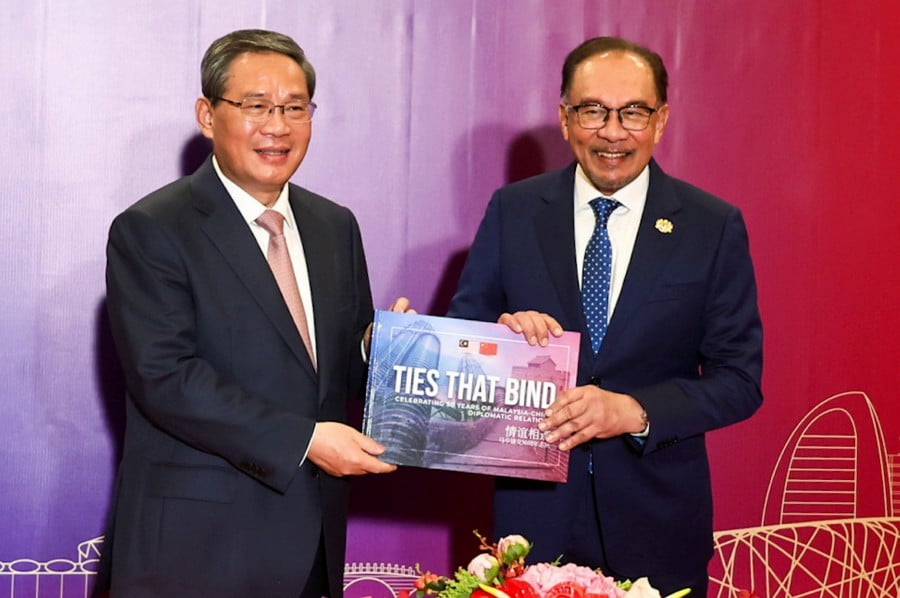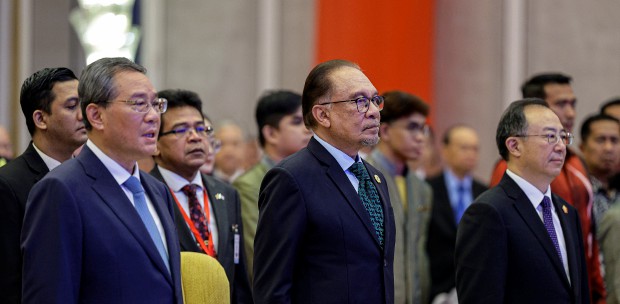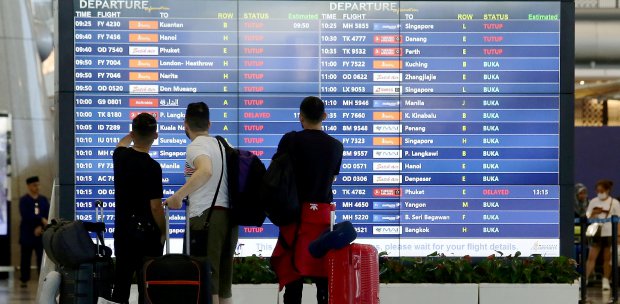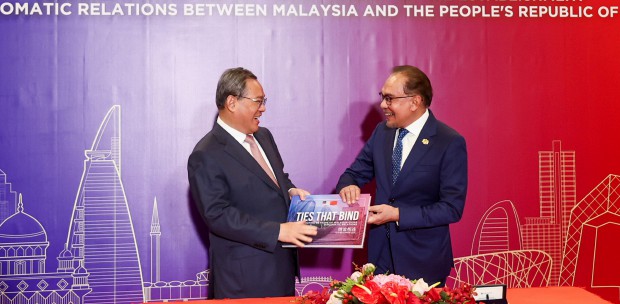KUALA LUMPUR: Malaysia and China have agreed to expand cooperation in the defence industry and enhance exchanges on national security.
In a joint statement, Prime Minister Datuk Seri Anwar Ibrahim and China Premier Li Qiang emphasised their mutual opposition to terrorism and commitment to strengthening law enforcement and anti-terrorism cooperation.
Both leaders also aim to jointly address cross-border crime and contribute to regional peace and stability.
"The two sides firmly support each other in safeguarding national sovereignty, security and territorial integrity and adhere to the principle of non-interference in other countries' internal affairs," they said in a joint statement, today.
The statement also reiterated Malaysia's firm commitment to the One China Policy, as per the Joint Communique signed by the leaders of both countries on May 31, 1974.
"Consistent with the One China Policy, Malaysia also recognises that Taiwan is an inalienable territory of China for the republic to achieve national reunification and thus will not support any call for the independence of Taiwan.
"Both countries also reaffirm their commitments to safeguard social stability, protect national security and enhance national unity."
At the same time, the two countries also highlighted the importance of preserving and maintaining peace and security in the Asia Pacific region, supported by respect for sovereignty and adherence to agreed rules and norms.
In regards to this, both Malaysia and China have agreed to support efforts to preserve Southeast Asia as a region free from nuclear weapons and other weapons of mass destruction, while contributing to global efforts on disarmament, non-proliferation and peaceful uses of nuclear energy, in line with the Southeast Asia Nuclear Weapon-Free Zone treaty.
Both leaders also reaffirmed their commitment to the purposes and principles of the United Nations (UN) Charter, pledging to uphold the international system with the UN at its core.
They emphasised the importance of the international order supported by international law and the basic norms governing international relations as outlined in the UN Charter.
"Following this, both sides will stand for unity and cooperation of the international community, safeguard international fairness and justice, and promote humanity's common values of peace, development, equity, justice, democracy and freedom.
"Among others, both leaders also agreed to keep the momentum of high-level exchanges and provide significant strategic guidance for the stable development of bilateral relations.
"The two sides will also intensify the exchanges and cooperation between the central and local governments, legislatures, and political parties, enhance communication on policies and strengthen experience sharing on governance."







